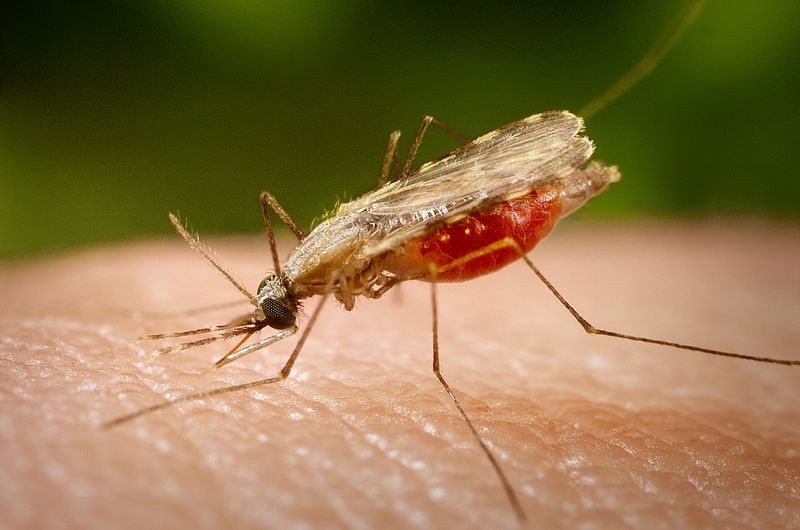Malaria crisis in Latin America
April 25, 2018 | Expert Insights

In what threatens to be the next healthcare crisis in Latin America, experts have revealed that Malaria cases in Venezuela have jumped by 69% in 2017 alone. The nation is the midst of an economic and political crisis.
Background
Despite having world's largest proven oil deposits, many Venezuelans have lived in abject poverty. The former President, Hugo Chavez, was in office from 1999 to 2013. In that period, billions of dollars were spent in generous social programs. After his death, his successor, Nicolas Maduro took office. There has been a rise in inflation and a shortage of basic goods. A drop in the oil prices had added to the administration’s problems.
From 2014, there have been recurrent protests against the government because of many of these issues. Detractors blame the current economic policies for the crisis. People are also disillusioned by the high level of urban violence prevalent in the nation.
The protests have increased from 2017. There have been calls for fresh elections to remove United Socialist Party (PSUV) from power. However, the government remains as powerful as ever in the nation. Recently, a new constituent assembly was instated in Venezuela. The assembly is filled with Maduro supporters and has the power to re-write the nation’s constitution.
The nation’s economy has become increasingly unstable and there is hyperinflation in the region. In August 2017, CNN reported that 3,164 Bolivars was equivalent to $1. This is a problem because private banks let Venezuelans withdraw 30,000 bolivars ($2.88) from an ATM at a time.
Reports have also revealed that hospitals in the country are running out of medicines and they are unable to treat those admitted. A recent study revealed that at least 93% of Venezuelans cannot afford to buy enough food. The study also stated that 73% of the population have lost weight in 2017 alone. Reports note that people have taken to scavenging through trash.
Analysis
There is a growing health crisis in the Latin American nation amid ongoing economic and political turmoil. According to Pharmaceutical Federation of Venezuela, the nation is presently grappling with an 85 percent shortage of medicine. The shortage has forced Venezuelans to go looking for medicine on the black market. Even if they were able to get these medicines, most Venezuelans cannot afford it at this point.
Malaria cases in Venezuela have reported jumped by an estimated 69 percent in 2017 alone. Health experts have expressed that the spread of the disease in the embattled country and other parts of Latin America could cause a health crisis of massive proportions.
"What we are now seeing is a massive increase, probably reaching close to half a million cases per year," Pedro Alonso, director of WHO's global malaria programme, told reporters on Tuesday. "These are the largest increases reported anywhere in the world," he added, blaming a lack of resources and ineffective anti-malaria campaigns.
Numbers from the World Health Organization revealed that cases of malaria in Venezuela rose from to 240,613 in 2016 to 406,000 in 2017. The problem is not isolated to just Venezuela and is spreading across Latin America, according to the UN health agency. "In the Americas, it's not just Venezuela. We're actually reporting increases in a number of other countries," said Alonso. "Venezuela, yes this is a significant concern, malaria is increasing and it's increasing in a very worrying way."
It should be noted that due to the economic crisis in Venezuela, hundreds of thousands are fleeing the country to other regions. More than 1 million Venezuelans have fled the country in recent years amid a deep economic crisis. “We are seeing indeed because of population movement, cases among Venezuelan migrants appearing in other countries - Brazil certainly. But also, in Colombia, in Ecuador and in a number of other places,” Alonso said. “What this calls for is renewed effort by the countries surrounding Venezuela to ensure adequate diagnosis and treatment free for whoever shows up at medical services,” he said.
In a recent report the World Health Organization has signaled a warning that progress in fighting against malaria has stalled globally. The organization has said that this is due to lack in funding and complacency that the mosquito-borne disease is less of a threat. In 2016, there were an estimated 445,000 deaths from malaria in the world, compared to 446,000 estimated deaths in 2015.
According to the organization, the funding for malaria has stalled since 2010. In order to address malaria, globally, an investment of $2.7 billion was made in 2016. This was lesser than what was spent in 2015 when $2.9 billion was spent. However, this number is far too low to meet targets. WHO has stated that a minimum annual investment of $6.5 billion has to be made by 2020 to meet projected targets by 2030. Nations like India are among the most affected by this disease. For more details, click here.
Assessment
Our assessment is that the economic implosion and hyperinflation has resulted in extremely poor living conditions for the citizens of the nation. Critics argue that poor governance and policies is to blame for the crisis. The current warning by WHO should be taken very seriously by the global community as it can affect hundreds of millions of those living in Latin America including young children. In addition, there are lessons for governments across the world. It is indicative of what happens when a nation's government ignores its most pressing economic problems – other major crisis break out as a result.
Read more: A warning about Malaria








Comments